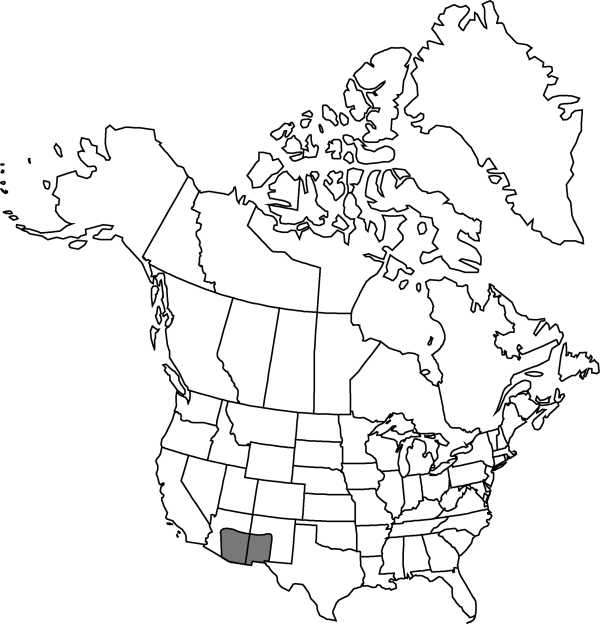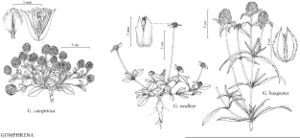Difference between revisions of "Gomphrena caespitosa"
in W. H. Emory, Rep. U.S. Mex. Bound. 2(1): 181. 1859.
Common names: Tufted globe-amaranth
FNA>Volume Importer |
FNA>Volume Importer |
||
| Line 47: | Line 47: | ||
|publication year=1859 | |publication year=1859 | ||
|special status= | |special status= | ||
| − | |source xml=https://jpend@bitbucket.org/aafc-mbb/fna-data-curation.git/src/ | + | |source xml=https://jpend@bitbucket.org/aafc-mbb/fna-data-curation.git/src/f6b125a955440c0872999024f038d74684f65921/coarse_grained_fna_xml/V4/V4_890.xml |
|genus=Gomphrena | |genus=Gomphrena | ||
|species=Gomphrena caespitosa | |species=Gomphrena caespitosa | ||
Revision as of 20:03, 24 September 2019
Plants perennial, cespitose, 0.5–1.5 dm; roots primary, diffuse, woody. Stems ascending, with 1–2 pairs of leaves, sparsely villous, often glabrate. Leaves mostly basal; petiole to 3 cm; blade green, obovate or oblong, 3.5–7.5 × 2–3 cm, apex rounded or obtuse, densely grayish appressed-pilose. Inflorescences: heads white, subglobose, 10–17 mm diam.; bractlets not crested, margins dentate near apex. Flowers: tube densely white-pilose; perianth lobes white to yellow, linear to lanceolate, 4.5–5 mm, hyaline, apex obtuse. Utricles ovoid, 2 mm, apex acute. Seeds 1.5 mm.
Phenology: Flowering spring–early summer.
Habitat: Open woodlands, especially oak-juniper woodlands, hillsides
Elevation: 600-2000 m
Distribution

Ariz., N.Mex., Mexico (Sonora).
Discussion
Selected References
None.
Lower Taxa
None.
